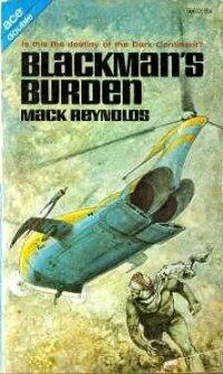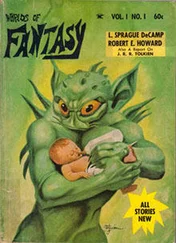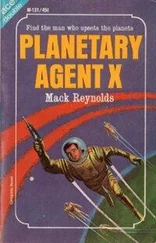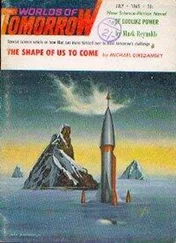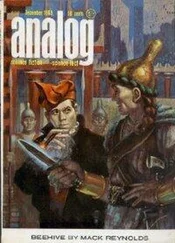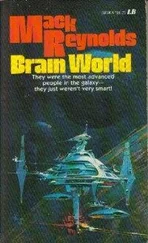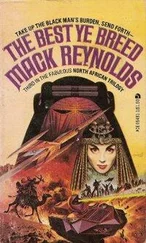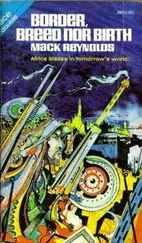While the Emir and his counselor stared amazement, the spokesman of the strangers said, “How long before you can project?”
“Almost immediately.”
The other young man left the room and returned with what was obviously a movie projector. He set it up at one end of the table, pointing at a white wall, and plugged it in to a convenient outlet.
Before the Emir had managed to control himself beyond the point of saying any more than, “What is all this?” the cameraman had brought a magazine of film from his instrument and inserted it in the projector.
The photographer said conversationally, to the hulking potentate, “You’d be amazed at the advances in cinema these past few years. Film speed, immediate development, portable sound equipment. You’d be amazed.”
Someone flicked out the greater part of the room’s light. The projector buzzed and on the wall was thrown a reenactment of everything that had been said and done in the room for the past ten minutes.
When it was over, the lights went on again.
The spokesman said conversationally, “I assume that if this film were shown throughout the villages, even your Hausa serfs would be convinced that throughout your reign you have systematically robbed them.”
Emir Alhaji Mohammadu, the Galadima Dawafctn, Kudo of Kano, his face in shock, turned and stumbled from the room.
The gymkhana, or fantasia as it is called in nearby Morocco, was under full swing before Abd-el-Kader and the camel- and horse-mounted warriors of his Ouled Touameur clan came dashing in, rifles held high and with great firing into the air. The Ouled Touameur were the noblest clan of the Ouled Allouch tribe of the Berazga division of the Chaambra nomad confederation —the noblest and the least disciplined. There were whispered rumors going about the conference as to the identity of the mysterious raiders who were preying upon the new oases, the oil and road building camps and the endless other new projects springing up, all but magically, throughout the northwestern Sahara.
The gymkhana was in full swing with racing and feasting, and storytellers and conjurers, jugglers and marabouts. And in the air was the acrid distinctive odor of kif , for though Mohammed forbade alcohol to the faithful he had naught to say about the uses of cannabis sativa and what is a great festival without the smoking of kif and the eating of majoun ?
The tribes of the Chaambra were widely represented, Berazga and Mouadhi, Bou Rouba and Ouled Fredj, and there was even a heavy sprinkling of the sedentary Zenatas come down from the towns of Metlili, El Oued, and El Goleo. Then, of course, were the Haratin serfs, of mixed Arab-Negro blood, and the Negroes themselves, until recently openly called slaves but now—amusingly —named servants.
The Chaambra were meeting for a great ceremonial gymkhana, but also, as was widely known, for a djemaa el kebar council of elders and chiefs, for there were many problems throughout the Western Erg and the areas of Mzab and Bourara. Nor was it secret only to the inner councils that the meeting had been called by Abd-el-Kader, of Shorfu blood, direct descendent of the Prophet through his daughter Fatima, and symbol to the young warriors of Chaambra spirit.
Of all the Ouled Touameur clan Abd-el-Kader alone refrained from discharging his gun into the air as they dashed into the inner circle of khaima tents which centered the gymkhana and provided council chambers, dining hall and sleeping quarters for the tribal and clan heads. Instead, and with head arrogantly high, he slipped from his stallion tossing the reins to a nearby Zenata and strode briskly to the largest of the tents and disappeared inside.
Bismillah ! but Abd-el-Kader was a figure of a man! From his turban, white as the snows of the Atlas, to his yellow leather boots, he wore the traditional clothing of the Chaambra and wore them with pride. Not for Abd-el-Kader the new clothing from the Rouma cities to the north, nor even the new manufactures from Dakar, Accra, Lagos and the other mushrooming centers to the south.
His weapons alone paid homage to the new ways. And each fighting man within eyesight noted that it was not a rifle slung over the shoulder of Abd-el-Kader but a submachine gun. Bismillah! This could not have been so back in the days when the French Camel Corps ruled the land with its hand of iron.
The djemaa el kebar was already in session, seated in a great circle on the rug and provided with glasses of mint tea and some with water pipes. They looked up at the entrance of the warrior clan chieftain.
El Aicha, who was of Maraboutic ancestry and hence a holy man as well as elder of the Ouled Fredj, spoke first as senior member of the conference. “We have heard reports that are disturbing of recent months, Abd-el-Kader. Reports of activities amongst the Ouled Touameur. We would know more of the truth of these. But also we have high interest in your reason for summoning the djemaa el kebar at such a time of year.”
Abd-el-Kader made a brief gesture of obeisance to the Chaambra leader, a gesture so brief as to verge on disrespect. He said, his voice clear and confident, as befits a warrior chief, “Disturbing only to the old and unvaliant, O El Aicha.”
The old man looked at him for a long, unblinking moment. As a youth, he had fought at the Battle of Tit when the French Camel Corps had broken forever the military power of the Ahaggar Tuareg. El Aicha was no coward. There were murmurings about the circle of elders.
But when El Aicha spoke again, his voice was level.
“Then speak to us, Abd-el-Kader. It is well known that your voice is heard ever more by the young men, particularly by the bolder of the young men.”
The fighting man remained standing, his legs slightly spread. The Arab, like the Amerind, likes to make speech in conference, and eloquence is well held by the Chaambra.
“Long years ago, and only shortly after the death of the Prophet, the Chaambra resided, so tell the scribes, in the hills of far away Syria. But when the word of Islam was heard and the true believers began to race their strength throughout all the world, the Chaambra came here to the deserts of Africa and here we have remained. Long centuries it took us to gain control of the wide areas of the northern and western desert and many were the battles we fought with our traditional enemies the Tuareg and the Moors before we controlled all the land between the Atlas and the Niger and from what is now known as Tunisia to Mauritania.”
All nodded. This was tribal history.
Abd-el-Kader held up four fingers on which to enumerate. “The Chaambra were ever men. Warriors, bedouin; not for us,the cities and villages of the Zenatas, and the miserable Haratin serfs. We Chaambra have ever been men of the tent, warriors, conquerors!”
El Aicha still nodded. “That was before,” he murmured.
“That will always be!” Abd-el-Kader insisted. His four fingers were spread and he touched the first one. “Our life was based upon, one, war and the spoils of war.” He touched the second finger. “Two, the toll we extracted from the caravans that passed from Timbuktu to the north and back again. Three, from our own caravans which covered the desert trails from Tripoli to Dakar and from Marrakech to Kano. And fourth”— he touched his last finger—“from our flocks which fed us in the wilderness.” He paused to let this sink in.
“All this is verily true,” muttered one of the elders, a so-what quality in his voice.
Abd-el-Kader’s tone soured. “Then came the French with their weapons and their multitudes of soldiers and their great wealth with which to pursue the expenses of war. And one by one the Tuareg and the Teda to the south and the Moors and Nemadi, yes, and even the Chaambra fell before the onslaughts of the Camel Corps and their wild-dog Foreign Legion.” He held up his four fingers again and counted them off. “The four legs upon which our life was based were broken. War and its spoils were prevented us. The tolls we charged caravans to cross our land were forbidden. And then, shortly after, came the motor trucks which crossed the desert in a week, where formerly the journey took as much as a year. Our camel caravans became meaningless.”
Читать дальше
